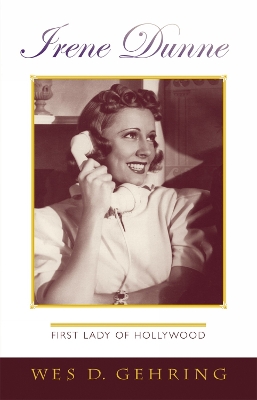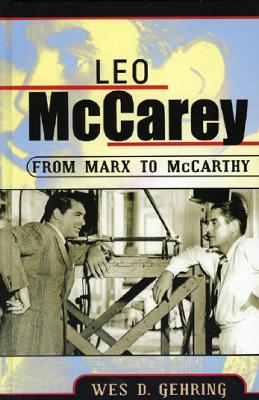The Scarecrow Filmmakers
2 total works
This is the first full-length biography of Irene Dunne, one of the most versatile actresses of Hollywood's Golden Age. A recipient of the Kennedy Center Honors award in 1985, Dunne's acting highlights include five Best Actress Oscar nominations, occurring in almost as many different genres: the Western Cimarron (1931), the two screwball comedies Theodora Goes Wild (1936) and The Awful Truth (1937), the romantic comedy Love Affair (1939), and the populist I Remember Mama (1948). Her other memorable films include My Favorite Wife (1940), Penny Serenade (1941), Anna and the King of Siam (1946), and Life with Father (1947). After delving into Dunne's childhood and early acting forays, the book reveals details about key events in her life and career, including a difficult, bi-coastal marriage. The author also examines Dunne's pivotal roles on stage and in film, her movement among the genres of melodrama and screwball comedy, her ties to director Leo McCarey, and her post-war film career. Gehring's research and insightful analysis shed light on what made Irene Dunne so unique and her performances so memorable. Includes 16 pages of photos.
Early in his Hollywood career, Leo McCarey honed his skills by working with some of the great names of comedy, including Laurel and Hardy, W.C. Fields, and The Marx Brothers, whose 1933 classic, Duck Soup, McCarey directed. Later, as a writer and/or director, McCarey was responsible for a number of classic films, including Ruggles of Red Gap, The Awful Truth, Love Affair, Make Way for Tomorrow, My Favorite Wife, and An Affair to Remember. McCarey's 1944 film Going My Way was nominated for ten Academy Awards and won seven, including the first triple crown awarded to the same person for writing, producing, and directing. Its sequel, The Bells of St. Mary's, would receive eight nominations, including Best Picture and Director. Despite all of his commercial and artistic successes, McCarey has been sadly neglected by film historians and scholars. While many of his contemporaries have been elevated to auteur status, McCarey's contributions to film have not sparked the same level of interest or esteem. Film scholar Wes Gehring seeks to rectify this with Leo McCarey: From Marx to McCarthy, the first full-length biography of this underappreciated artist. By exploring the director's life as filtered through his art, Gehring maintains that McCarey's films were often a reworking of his antiheroic self. In addition, the apparent diversity of his films actually represents an interrelated web of various comedy genres and a pattern of antiheroic characters and themes. The author makes the convincing case that throughout his life and career, McCarey was driven to entertain any audience, from a single person to movie millions, always trying to tell a better story. McCarey's own, long overdue story is finally revealed in this biography about one of the most fascinating figures to ever come out of the Hollywood dream factory.

